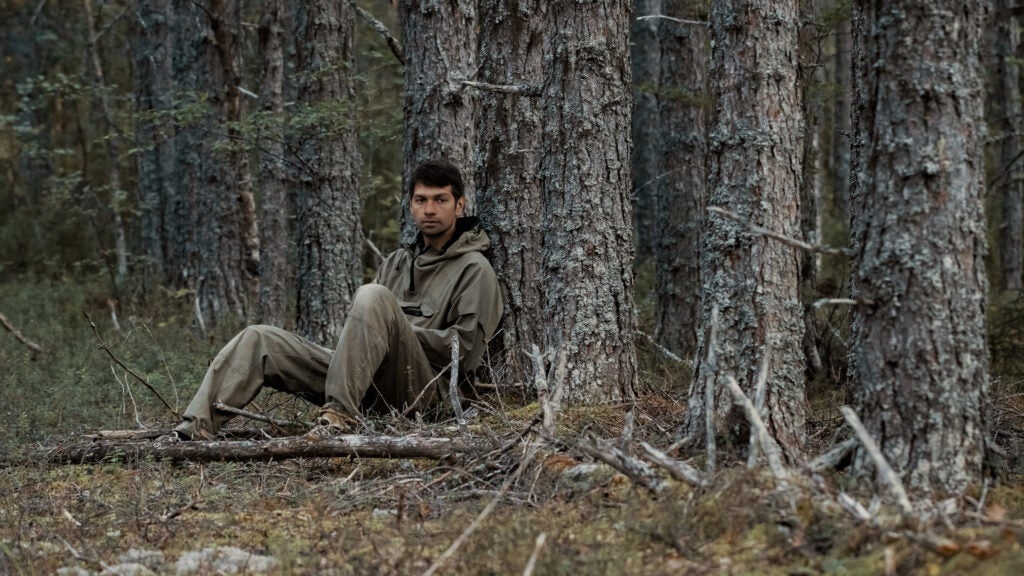



In her monthly column, The Survivalist, Jessie Krebs writes about staying alive in dangerous backcountry scenarios. Krebs is a former Air Force S.E.R.E (survival, evasion, resistance, and escape) instructor and owner of O.W.L.S. Skills.
Survival, like life, is an emotional ride, yet we live in a culture that tends to downplay feelings. In “normal” life we can often gloss over the impact of this since we are generally in an environment that has been designed with our safety in mind: skid-proof stairs with hand railings, regulated temperatures, drinking water and food easily available, and so on. We generally don’t need to pay much attention to our surroundings or our feelings to stay alive. However, in a wilderness survival situation, lack of emotional awareness is a primary threat. Emotions can cloud our minds and scrub out rational thought.
Most of the time in a survival situation, the danger is our poor decision making, not something in the environment. Awareness on all levels—of our surroundings, the time of day, our abilities, and how we’re feeling—is our best path to getting out in decent shape. But how do we tap into our feelings when many of us have been conditioned to ignore them? There are many techniques we can use to help ourselves recognize, feel, and move through emotions so we can get free of our limbic system and survive.
Practicing this skill at home can prepare you for things to go awry before you even hit the trail. Our ability to imagine is really incredible—we imagine our futures, recreate our pasts, and have conversations in our minds multiple times every day. Mark Twain said: “I have suffered a great many catastrophes in my life. Most of them never happened.” Use this power for good. What situation are you most afraid of? A couple times a day, imagine it as vividly as possible and then picture yourself dealing with it in a healthy, competent way. Practicing internally can help you react positively if you’re ever faced with a similar situation in real life.
Doing nothing is doing something. The fight, flight, or freeze response is primal and very powerful. Sometimes the only thing that can penetrate that compulsion is a story. I know dozens of stories of folks who died because they did not stop, think, observe, and make plans before they acted. No matter a person’s wilderness resume, anyone can fall prey to fight, flight, or freeze. So pick your story, know the unfortunate’s name, and honor them by not falling into the same trap.
Controlled breathing is an important tool in various practices from diving, sleeping, giving birth, meditation, yoga, and more. It can be useful to calm down in stressful situations, but remembering these techniques when you’re scared and alone is difficult. Remember one simple thing: Exhale slower than you inhale. That’s it. Practice this in your daily life so it comes to you naturally. No matter your pace of breathing, exhaling longer than you inhale will calm you down. It’s a physiological response that activates your parasympathetic system and sends a message to your brain and body that it’s OK to relax.
Studies have shown that choosing confident or relaxing poses boosts confidence, in turn helping us perform better. This is a way of using our bodies to convince our brains that we are in control. Certain poses can also help us feel grounded: Sit, lie down, or get into your favorite yoga pose (child’s pose is mine). Physically grounding ourselves helps us feel safe. This sense of security will help you stay clear-headed when it comes to making decisions.
When we allow our eyes to dart back and forth and our bodies to tense, we are activating our sympathetic nervous system which is used for fight, flight, or freeze in response to danger. To combat this, look at one thing—a particular tree or rock—and mentally describe it. Now, what do you smell? What can you feel on your skin? In your body? Check in with each part of your body and consciously tense and then relax it. This is yet another way to help activate your parasympathetic system, helping you feel more relaxed and in control of your body and emotions.

Repeat a self-affirming or goal-oriented phrase to yourself in your mind or aloud over and over. While climbing an extremely dangerous razor ridge on Maui while dehydrated and sleep deprived, my mind wanted to wander. I knew if I didn’t stay focused I was likely to misstep and fall to my death. Having been awakened by wild goats that morning (the only place to sleep had been right on their trail), I began to repeat the phrase “patient goat” over and over to myself. The repetition and rhythm of the words helped keep me present.
This can be in a higher power, or in yourself and your strength and determination to get through tough things. People have overcome incredibly adverse situations with sheer willpower. Having faith that you are not done with life and life is not done with you can encourage you to keep going against what your logical mind would say are insurmountable odds. Reminding yourself of past success can help you feel success is also possible now.
The best survivors are ages 3 to 7. I’m not sure any of us knows exactly why, but my current belief is that the world is still a magical place to kids. Most have not yet been conditioned to see wilderness as a danger, so they don’t have the same drive as adults to keep moving and get back to civilization. Traveling is way more dangerous than staying put, causes us to burn up crazy amounts of calories and water, and it’s often what older folks feel compelled to do. Instead, hug a tree, drink from the stream, and cover yourself in leaves and debris if you’re cold. Be hedonistic and childlike, relax, laugh, and be curious—there’s no “rat race” out here.
From 2023

